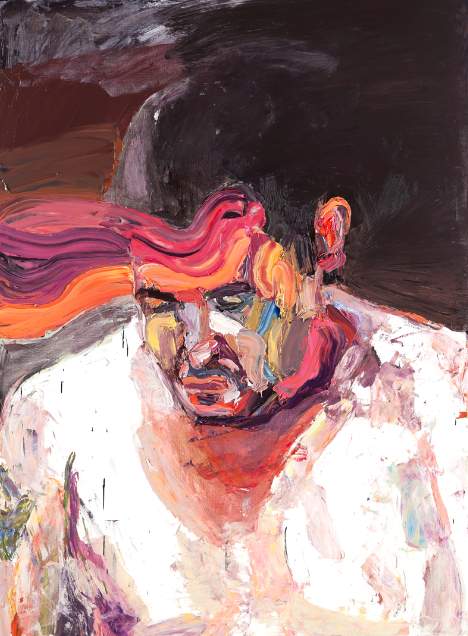Ben Quilty: After Afghanistan
A human look at military service comes from Australia's embedded war artist.
Overview
In these massive and mostly nude portraits of returned soldiers in After Afghanistan, official Australian war artist Ben Quilty has tuned into the rare moment when all holds are unbarred. Without their armour, uniforms, and weaponry, these majors, lieutenants, and officers bare not just their bodies but their traumas, vulnerabilities, and wounded courage.
Quilty's previous bodies of work have trickled the themes of mortality, modern masculinity, and Australiana through the autobiographical lens of his youthful experiences of boozing, hooning, and self-destructing in Sydney’s western suburbs. The lens he uses is now the experiences of Australian soldiers. For years, the artist has built his own, distinctly Quilty visual language, one that is hyper-real, hyper-masculine, hyper-coloured, and extreme in its oil-slick paint slathers still in gravitational collapse. The signature candy colours have now been replaced by sombre khakis and murky violets. The testosterone-fuelled Toranas are now Bushmaster armoured vehicles.
One officer's face is partly consumed by a black hole, another’s forehead bleeds into a threatening landscape via ribbons of orange. Sections of stark white, unpainted canvas push through many of the works. Through a gentle procession of abstractions, Quilty has presented soldiers in various states of disappearance, he has shown them being voided. The words of cinematographer Bruce McCleery come to mind here: "It's not pretty, but it is beautiful."
These are frank works. Quilty has no space for art-world irony or self-knowing cleverness, and there's a sense of violence being not so much an action but a feeling that won't go away.
The politics of Australia's continued involvement in Afghanistan is at the retracted edge of the show. It's a curious fact that since 9-11, Western artists and filmmakers seem to have focused less on the wars' impact on the people of the Middle East, and more on the experience of our soldiers out there. In this way, Ben Quilty: After Afghanistan is the Australian art world's answer to the American film The Hurt Locker a study of men at war, any war, and the psychological toll taken.
Ben Quilty will be speaking at the National Art School Gallery's Art Forum series on February 27, 1-2pm, and at The Art of War: Panel Discussion with Wendy Sharpe and Dr Kit Messham-Muir on March 20 at the Cell Block Theatre (bookings through Art Month).





